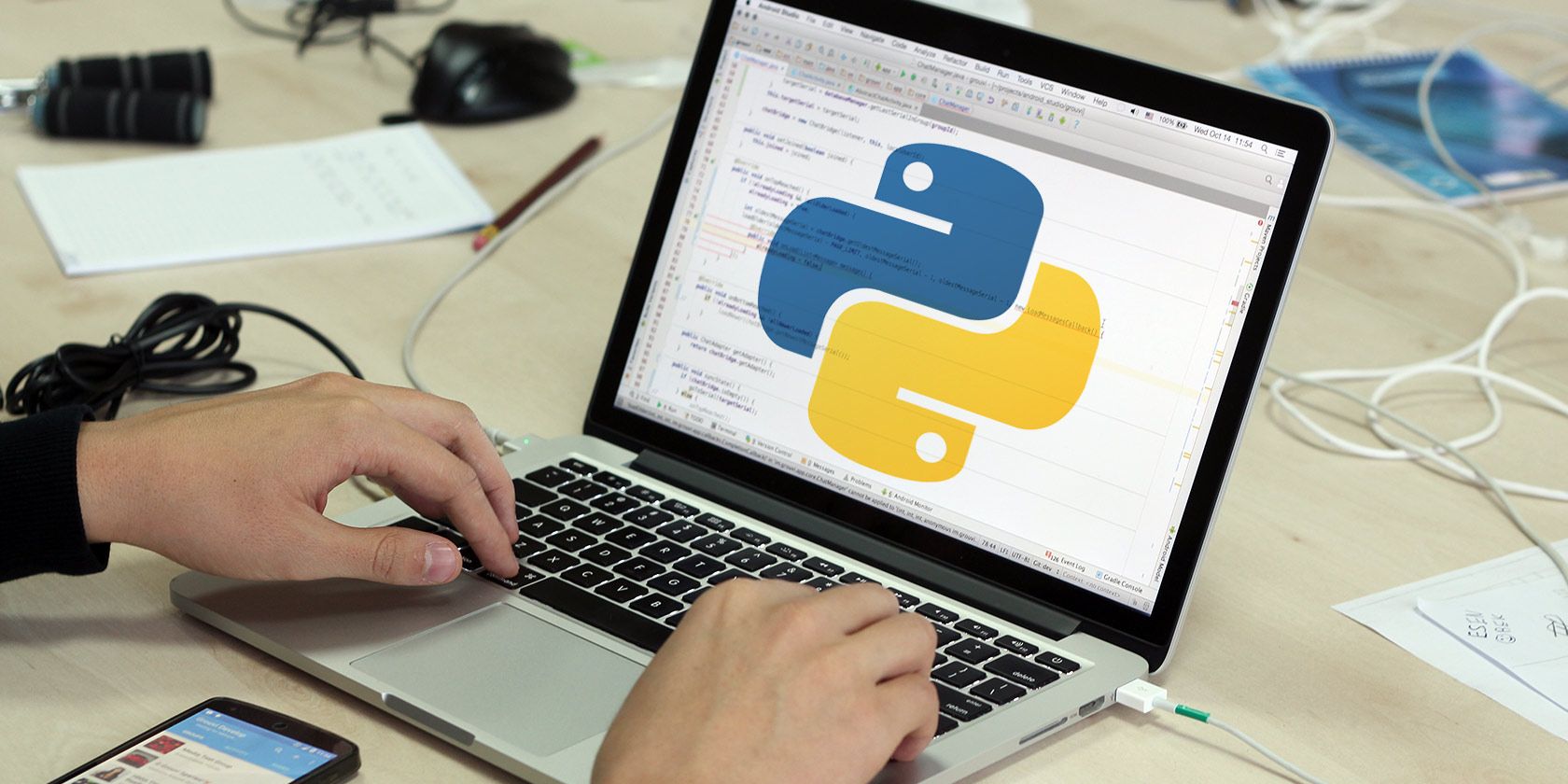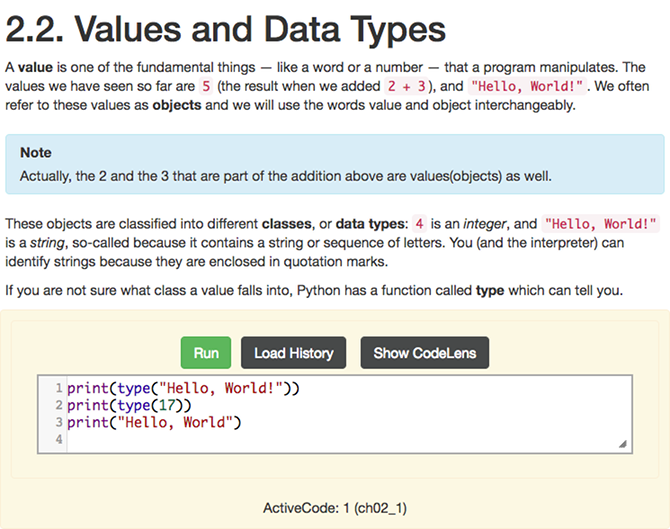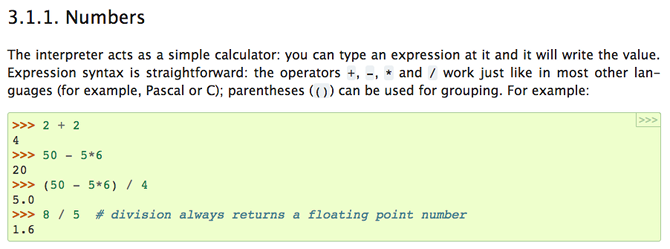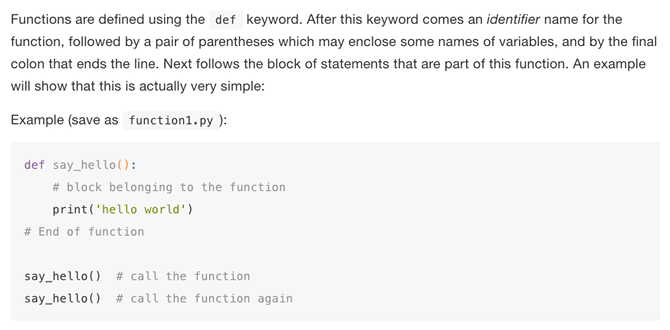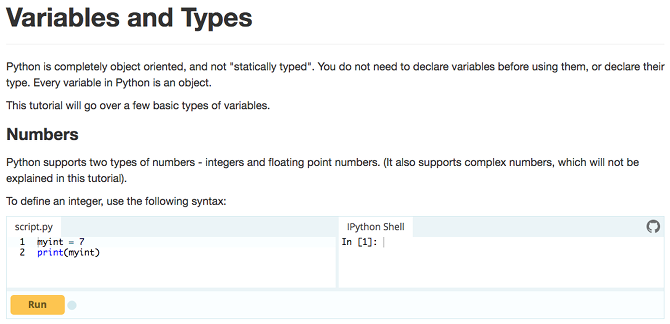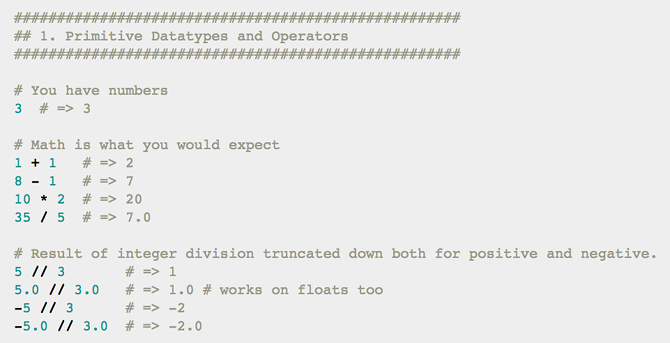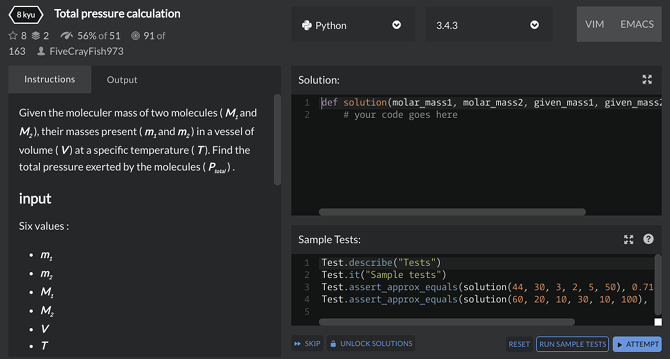Over the past decade, the Python programming language has exploded in popularity for all types of coding. From web developers to video game designers, from data scientists to in-house tool creators, many have fallen in love with Python. Why? Because Python is easy to learn, easy to use, and very powerful.
Want to learn Python programming? Here are some of the best resources and ways to learn Python online, many of which are entirely free. For optimal results, we recommend that you utilize ALL of these websites, as they each have their own pros and cons.
1. How to Think Like a Computer Scientist
One of the best Python tutorials on the web, the How to Think Like a Computer Scientist interactive web tutorial is great because it not only teaches you how to use the Python programming language, but also how to think like a programmer. If this is the first time you've ever touched code, then this site will be an invaluable resource for you.
Keep in mind, however, that learning how to think like a computer scientist will require a complete shift in your mental paradigm. Grasping this shift may be easy for some and difficult for others, but as long as you persevere, it will eventually click. And once you've learned how to think like a computer scientist, you'll be able to learn programming languages other than Python with ease!
2. The Official Python Tutorial
What better place to learn Python than on the official Python website? The creators of the language itself have devised a large and helpful guide that walks you through the language basics.
The best part of this web tutorial is that it moves slowly, drilling specific concepts into your head from multiple angles to make sure you truly understand them before moving on. The website's formatting is simple and pleasing to the eye, which just makes the whole experience that much easier.
If you have some background in programming, the official Python tutorial may be too slow and boring for you---but if you're a brand newbie, you'll likely find it to be an indispensable resource on your journey.
3. A Byte of Python
The A Byte of Python web tutorial series is awesome for those who want to learn Python and have a bit of previous experience with programming. The very first part of the tutorial walks you through the steps necessary to set up a Python interpreter on your computer, which can be a troublesome process for first timers.
There is one drawback to this website: it does try to dive in a bit too quickly. As someone with Python experience under my belt, I can see how newbies might be intimidated by how quickly the author moves through the language.
But if you can keep up, then A Byte of Python is a fantastic resource. If you can't? Try some of the other Python tutorial websites in this list first, and once you have a better grasp of the language, come back and try this one again.
4. LearnPython
Unlike the previously listed Python tutorial sites, LearnPython is great because the website itself has a built-in Python interpreter. This means you can play around with Python coding right on the website, eliminating the need for you to muck around and install a Python interpreter on your system first.
Of course, you'll need to install an interpreter eventually if you plan on getting serious with the language, but LearnPython actually lets you try Python before investing too much time setting up a language that you might end up not using.
LearnPython's tutorial incorporates the interpreter, which allows you to play around with code in real-time, making changes and experimenting as you learn. The programming exercises at the end of each lesson are helpful, too.
When you feel confident, you can then use Heroku to host your Python site for free.
5. Learn X in Y Minutes: Python 3
Let's say you have plenty of programming experience and you already know how to think like a programmer, but Python is new to you and you just want to get to grips with the actual syntax of the language. In that case, Learn X in Y Minutes is the best website for you.
True to its name, this site lays out all of the syntactic nuances of Python in code format so that you can learn all of the important bits of Python's syntax in under 15 minutes. It's succinct enough to suffice as a reference---bookmark the page and come back to it whenever you forget a certain aspect of Python.
In fact, Learn X in Y Minutes is my favorite resource for learning any programming language's syntax.
Bonus Resource: CodeWars
CodeWars isn't so much a tutorial as it is a gamified way to test your programming knowledge. It consists of hundreds of different coding puzzles (called "katas"), which force you to take what you've learned from the aforementioned Python websites and apply them to real-life problems.
The katas on CodeWars are categorized by difficulty, and they do have an instructive quality to them, so you'll definitely learn as you go through each puzzle. As you complete katas, you'll "level up" and gain access to harder katas. But the best part? You can compare your solutions with solutions submitted by others, which will significantly accelerate your learning.
Though it has a relatively shallow learning curve, Python is a powerful language that can be utilized in multiple applications. Its popularity has grown consistently over the years, and there's no indication that the language will disappear any time soon.
Still have questions? Check out our answers to the most frequently asked questions about Python programming and then dive into our Python RegEx cheat sheet. And if you want to learn other programming languages, too, try these excellent sites for free online computer programming courses!

